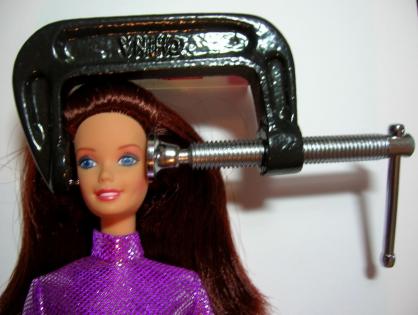Almost everyone gets a headache from time to time. Some people, though, get them daily or almost every day and women are twice as likely as men to suffer from chronic headaches.
People who are chronic sufferers get a headache every day or nearly every day for a prolonged period of time - for example, at least five days a week for a year or longer. Most often, chronic daily headache develops in people who used to get the occasional migraine, tension, or other type of headache. Sometimes chronic daily headache develops without any preamble or warning.
No matter how it originates, chronic daily headache is notoriously difficult to treat and, understandably, often produces anxiety and depression.
But according to Professor Nick Dorsch of the Neurological Society of Australasia and from Westmead Hospital, there are alternative treatments for headaches.
“Many people reach for painkillers as soon as they get a headache. The analgesics market is worth more than $1 billion annually,” he said.
“But recent studies support some new ways to treat and prevent headaches, without relying totally on medication.”
Professor Dorsch says some of the alternatives include:
1. An electrical device like a tiara, worn on the head. This produces repetitive electrical stimulation to the nerves that transmit migraine pain.
“Small clinical trials have shown that for some headache sufferers, tiaras can provide pain relief and minimise headache occurrences, without side effects,” said Professor Dorsch.
2. Botox treatment, famous for wrinkle smoothing, has been validated as a migraine treatment.
Rachel Irwin, a primary school teacher who suffered chronic daily migraines resulting from a car accident says botox has been her saviour. “I was bed ridden. I couldn’t exercise or do anything I needed to do for my injuries. After a month of Botox treatment I could drive again and have now started to work.”
3. Dehydration has been found to act as a trigger for some headaches. A headache is also one of the first symptoms of dehydration.
“Drinking water is the first step to avoiding dehydration, but if hydration levels have dropped too low, a specific rehydration product like Hydralyte can provide faster relief with the correct balance of glucose and electrolytes providing rapid rehydration,” said Professor Dorsch.
4. Techniques such as massage, ultrasound, or gentle stretching to relieve muscle tightness may help keep headaches at bay.
Those who suffer from chronic headaches are encouraged to join the headache register at Headache Australia, to find out the latest news and research, access a ‘headache diary’ and possibly participate in new treatment trials.
And to ‘celebrate’ Headache Week (if that’s the right verb), headache sufferers are invited to turn up at one of three locations in each of Sydney, Melbourne and Brisbane for the latest headache information. There are also freebies, stress balls and drink bottles for the first 200 people in each city to join the headache register.
- Monday 16 September: Sydney - Wynyard Park (York Street)
- Tuesday 17 September: Melbourne – Bourke Street Mall (outside Adidas)
- Wednesday 18 September: Brisbane – Queen Street Mall (outside David Jones)



















__small.png)










